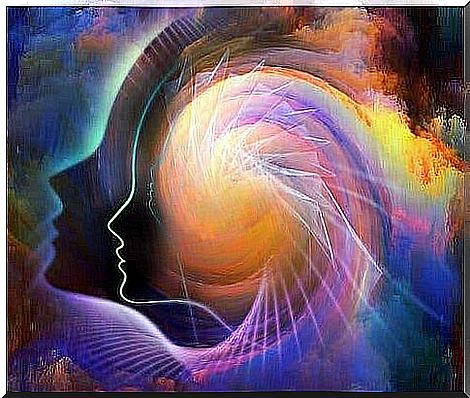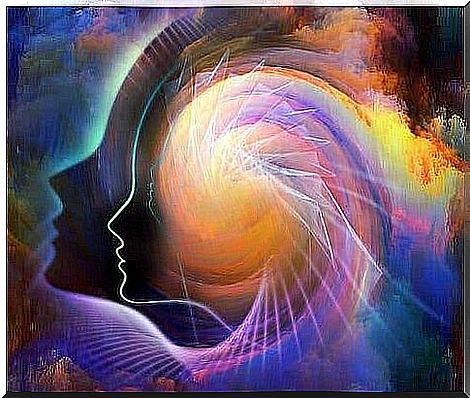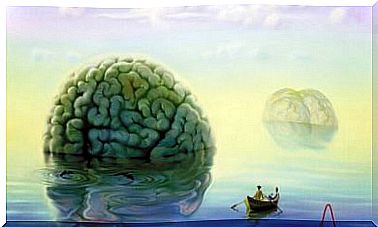Your Brain During A Spiritual Experience

People believe that spiritual experiences are faith-related encounters with a higher truth or power. These experiences take many forms, depending on how you interpret the concept. So what happens in the brain during a spiritual experience?
Researchers have investigated this question on a number of occasions. In fact, researchers have been studying the importance of spirituality in human life for decades. A special study focused on what happens in the human brain when people feel a deep, spiritual connection to something.
Different ways to understand a spiritual experience
One problem with studying this question is that different people and cultures understand the concept of “spirituality” in very different ways. Consequently, anything that some might call a “spiritual experience” can stimulate the brain in very complex ways. Therefore, mapping the spiritual area of the brain is not an easy task.

Despite the challenges of this particular research question, researchers have continued to search for answers. Some of them concluded that connecting to a higher being involves more areas of the brain.
Other conclusions can be drawn from several other studies. One is that individuals who practice spiritual practice have reduced activity in their right islet. The specific area of the brain relates to self-oriented focus. In other words, spiritual experiences seem to increase the “disinterest” in the brain, so to speak.
Spirituality and depression
Lisa Miller, author of The Oxford Handbook of Psychology and Spirituality , has conducted many studies on what happens in the brains of people who live intensely spiritual lives. Her research shows that this type of person has an enlarged prefrontal cortex.
Interestingly, Miller says that the prefrontal cortex actually shrinks in patients with chronic depression. This clue helped her form the hypothesis that spirituality and depression are two sides of the same coin.
Miller and her team of researchers at the Spirituality Mind Body Institute used functional MRI to find out what happened in human brains when they imagined an intense spiritual experience.
They recruited people who were willing to participate in various spiritual and religious practices. In this first experiment, they asked participants to remember a spiritual experience while taking a brain scan.

The experiment guide included a wide range of experiences because the participants had very different spiritual backgrounds. One was “a two-way relationship with a higher power.” Another described “a feeling of oneness with nature next to the sea or on a mountain”. They even included “being in a room with intense physical activity (like sports or yoga) and feeling a sudden awareness, connection or fluid feeling”.
The researchers argued that this is related to a more modern and broad definition of spirituality that can be independent of religion. They published the findings in the journal Cerebral Cortex .
Spirituality and stress
Studying participants’ brains while imagining a spiritual experience also made it possible for researchers to identify the regions of the brain that play a role in the treatment of spiritual experiences.
Miller and her colleagues also compared brain activity at two different moments: when participants described a spiritual experience and while imagining stressful or neutral experiences that did not trigger strong emotions.
During these experiments, they observed a pattern that occurred only during spiritual experiences. They said that the participants had reduced activity in the subordinate ice sheet when they described a spiritual event. As we mentioned above, that part of the brain has to do with self-awareness and awareness of others. On the other hand, this activity increased when the participant thought of stressful or neutral things.
Consequently, the research team suggests that this region may play a significant role in these moments. It is relevant for dealing with perceptions and representations of oneself and others during spiritual experiences. This seems to support the idea that spiritual experiences can help mitigate the effects of stress on mental health.
In the same way, these results draw attention to various neural mechanisms that underlie the spiritual experience. Researchers also claim that conducting similar studies in a clinical setting to explain how the brain processes spiritual experiences can help us understand whether spiritual practices can help improve mental health and well-being.









